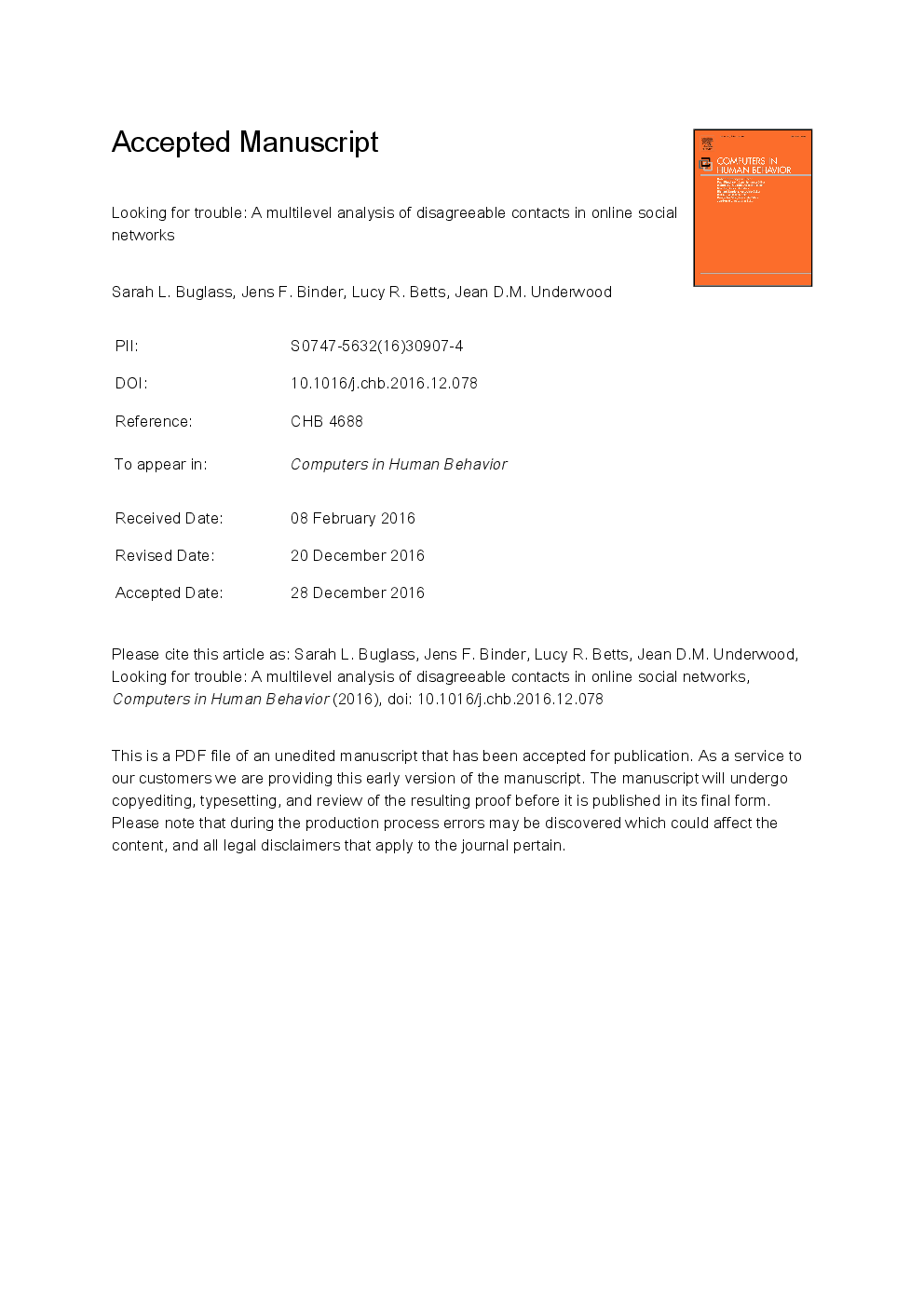ترجمه فارسی عنوان مقاله
در جستجوی مشکلات: یک تجزیه و تحلیل چند سطحی از مخاطبین ناخوشایند در شبکه های اجتماعی آنلاین
عنوان انگلیسی
Looking for trouble: A multilevel analysis of disagreeable contacts in online social networks
| کد مقاله | سال انتشار | تعداد صفحات مقاله انگلیسی |
|---|---|---|
| 98690 | 2017 | 44 صفحه PDF |
منبع

Publisher : Elsevier - Science Direct (الزویر - ساینس دایرکت)
Journal : Computers in Human Behavior, Volume 70, May 2017, Pages 234-243
ترجمه کلمات کلیدی
آسیب پذیری آنلاین، شبکه های اجتماعی آنلاین، تجزیه و تحلیل چندسطحی لجستیک باینری، اختلاف نظر در شبکه، خطر آنلاین،
کلمات کلیدی انگلیسی
Online vulnerability; Online social networks; Binary logistic multilevel analysis; Network disagreement; Online risk;

